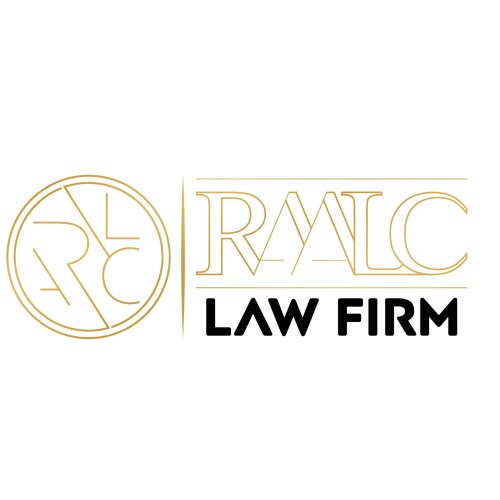Best Banking & Finance Lawyers in United Arab Emirates
Share your needs with us, get contacted by law firms.
Free. Takes 2 min.
Or refine your search by selecting a city:
List of the best lawyers in United Arab Emirates
United Arab Emirates Banking & Finance Legal Articles
Browse our 1 legal article about Banking & Finance in United Arab Emirates written by expert lawyers.
- Cheque Bounce Cases in UAE: Legal Consequences and Procedures
- Table of ContentsIntroduction: The Current Landscape for Cheque Law in the UAEThe New Legal Landscape: What Really Changed?The Shift from Criminal to Civil EnforcementThe Power of a "Writ of Execution"The Bank's New ObligationsFor the Creditor: A Step-by-Step Enforcement GuideStep 1: Obtain the Official Dishonour DocumentsStep 2: Issue a Formal Legal... Read more →
About Banking & Finance Law in United Arab Emirates
The banking and finance sector in the United Arab Emirates (UAE) is a dynamic and rapidly evolving component of the region's economy. The UAE has established itself as a prominent financial hub, with Dubai and Abu Dhabi playing pivotal roles. Banking and finance law in the UAE encompasses a wide range of legal issues, dealing with everything from personal banking services and credit facilities to complex corporate financial transactions. The country's legal framework is influenced by both Sharia law and civil law principles, which affects everything from loan agreements to investment opportunities. Regulatory oversight is provided by institutions such as the UAE Central Bank and the Securities and Commodities Authority, ensuring stability and integrity in the financial system.
Why You May Need a Lawyer
There are numerous situations in which individuals and businesses may require legal expertise in the field of banking and finance in the UAE:
- Negotiating loan agreements or restructuring existing debts.
- Complying with local banking regulations for new or existing businesses.
- Conducting due diligence and preparing documentation for mergers and acquisitions.
- Addressing disputes related to financial transactions or investment agreements.
- Advising on compliance with anti-money laundering regulations.
- Dealing with insolvency and liquidation processes.
Engaging a lawyer can provide clarity and professional guidance through these complex processes, safeguarding your financial interests and ensuring compliance with the law.
Local Laws Overview
The UAE's banking and finance sector is governed by a mix of federal laws, Emirate-specific regulations, and international norms. Key aspects of the legal framework include:
- Regulatory Bodies: The UAE Central Bank is responsible for monetary policy and banking regulations, while the Securities and Commodities Authority oversees capital markets.
- Banking Regulations: These include capital adequacy requirements, anti-money laundering (AML) compliance, and codes of corporate governance.
- Sharia Compliance: Islamic finance is an integral part of the UAE's banking landscape. Financial products and transactions must adhere to Islamic law principles.
- Data Protection: The UAE has specific regulations for the protection of financial data, aligning with international standards to ensure privacy and data security.
- Insolvency Law: Recent reforms have improved the ease of managing insolvency, providing frameworks for bankruptcy and restructuring procedures.
Frequently Asked Questions
1. Is Islamic banking available in the UAE?
Yes, Islamic banking is widely available in the UAE, offering products compliant with Sharia law, such as profit-sharing, leasing, and asset-backed financing.
2. What is the role of the UAE Central Bank?
The UAE Central Bank regulates monetary policy, supervises banks, and ensures financial stability by enforcing banking regulations and guidelines.
3. How can I resolve a banking dispute?
Banking disputes can be resolved through negotiation, mediation, or legal proceedings. Consulting a specialized lawyer can aid in navigating these processes.
4. What are the penalties for non-compliance with AML regulations?
Non-compliance with AML regulations can result in substantial fines, revocation of licenses, and legal action against the offending institution or individual.
5. Can foreigners open a bank account in the UAE?
Yes, foreigners can open bank accounts in the UAE, usually by providing identification, proof of residence, and source of funds documentation.
6. How does the UAE handle insolvency?
The UAE has a modern insolvency framework that includes provisions for bankruptcy proceedings and financial restructuring in line with international standards.
7. Are there specific laws for digital banking in the UAE?
Yes, the UAE has regulations that specifically address digital banking, aiming to ensure security and regulatory compliance for online financial services.
8. What legal support do expatriates need for mortgage financing?
Expatriates may need legal assistance to understand terms, negotiate mortgage agreements, and ensure the contract complies with UAE property and finance laws.
9. Is financial investment regulated in the UAE?
Yes, financial investments are regulated by the Securities and Commodities Authority, ensuring investor protection and market integrity.
10. How does one become a licensed financial advisor in the UAE?
To become a licensed financial advisor, individuals must meet educational and professional criteria set by the relevant regulatory bodies and obtain relevant certifications.
Additional Resources
If you need further information or assistance, consider these resources and organizations:
- UAE Central Bank
- Securities and Commodities Authority
- Dubai Financial Services Authority
- Abu Dhabi Global Market
- Legal consultancy firms specializing in banking and finance law
Next Steps
If you require legal assistance in banking and finance in the UAE, you can take the following steps:
- Identify the specific legal issue or aspect you need help with.
- Research and select law firms or legal consultants with expertise in banking and finance law in the UAE.
- Schedule consultations to discuss your needs and understand the services provided.
- Ensure that your chosen legal advisor has a good understanding of both local and international banking laws pertinent to your case.
- Prepare relevant documentation and details to facilitate effective legal consultation and representation.
Lawzana helps you find the best lawyers and law firms in United Arab Emirates through a curated and pre-screened list of qualified legal professionals. Our platform offers rankings and detailed profiles of attorneys and law firms, allowing you to compare based on practice areas, including Banking & Finance, experience, and client feedback.
Each profile includes a description of the firm's areas of practice, client reviews, team members and partners, year of establishment, spoken languages, office locations, contact information, social media presence, and any published articles or resources. Most firms on our platform speak English and are experienced in both local and international legal matters.
Get a quote from top-rated law firms in United Arab Emirates — quickly, securely, and without unnecessary hassle.
Disclaimer:
The information provided on this page is for general informational purposes only and does not constitute legal advice. While we strive to ensure the accuracy and relevance of the content, legal information may change over time, and interpretations of the law can vary. You should always consult with a qualified legal professional for advice specific to your situation.
We disclaim all liability for actions taken or not taken based on the content of this page. If you believe any information is incorrect or outdated, please contact us, and we will review and update it where appropriate.
Browse banking & finance law firms by service in United Arab Emirates
United Arab Emirates Attorneys in related practice areas.
Browse banking & finance law firms by city in United Arab Emirates
Refine your search by selecting a city.

















